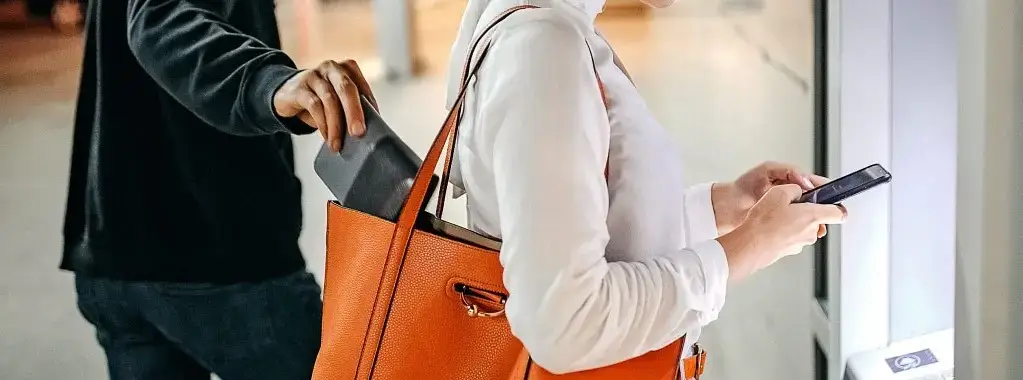How to Avoid Travel Scams
Table of Contents
ToggleThe thrill of traveling to new places is one of life’s greatest joys. But along with the excitement, there’s always a risk of running into some less-than-friendly folks who are out to take advantage of tourists. I’ve learned a few things over the years, and I’d like to share some advice on how to avoid travel scams.
The Classic Taxi Scam
It happens pretty much everywhere, but notably in cities like Bangkok, Rome, and New York.
How it works: The driver takes you on a “scenic route” to inflate the fare or tells you the meter is broken and charges an exorbitant flat rate. I have even heard of a secret foot lever that increases the speed of the meter.
How to avoid it:
- Always insist on using the meter. If the meter does not work, get out and find another cab.
- Research the usual fare from the airport to your hotel beforehand. Ask your Hotel what a trip from the airport should cost.
- Use ride-hailing apps like Uber or Grab where available. I always check prior to a journey if Uber is available in that city.
- If you don’t have data, use the airport wifi to hail an Uber/taxi where the fair is predetermined. I always pre-purchase an e-Sim and use it to make sure the driver is taking the best route.
The Fake Hotel Call
Where it happens: Common in the United States, especially in major cities.
How it works: You receive a call in your hotel room from someone claiming to be the front desk, asking for your credit card information to verify your booking.
How to avoid it:
- Never give out your credit card information over the phone.
- If you get such a call, hang up and call the front desk directly or go there in person to verify.
The “Friendly” Local
Where it happens: Cairo, Istanbul, and parts of South America.
How it works: A local approaches you with a friendly offer to show you around. Eventually, they lead you to a shop or restaurant where you feel pressured to buy something at inflated prices. Even knowing this, I have been caught twice in Istanbul. These guys oose charm and being diverted to a back street shop is hard to avoid.
How to avoid it:
- Be cautious of unsolicited offers of help.
- Politely decline and rely on reputable tour companies or guides.
- Trust your instincts; if something feels off, it probably is.
The Pickpocket Diversion
Where it happens: Barcelona, Paris, and Rome are notorious for this.
How it works: Someone creates a distraction, like dropping something or causing a commotion, while an accomplice picks your pockets.
How to avoid it:
- Keep your valuables in a money belt or a secure, anti-theft bag.
- Be extra vigilant in crowded areas and tourist spots.
- Avoid putting wallets or phones in back pockets. I always keep both wallet and phone in the front jean pocket which is harder to pickpocket.
The ATM Skimmer
Where it happens: Popular in Eastern Europe, but can happen anywhere.
How it works: Scammers attach a device to an ATM that captures your card information and PIN.
How to avoid it:
- Use ATMs inside banks or well-lit, busy areas.
- Check the ATM for anything that looks unusual or tampered with.
- Cover your PIN with your hand while entering it.
The “Closed” Attraction
Where it happens: Often in cities like Delhi and Beijing.
How it works: A scammer tells you that a popular tourist site is closed and offers to take you somewhere else, usually a shop or a different attraction where they get a commission.
How to avoid it:
- Double-check the status of attractions online or with your hotel.
- Be sceptical of anyone who approaches you with this claim.
- Stick to your plans and verify information from official sources.
The Fake Police Officer
Where it happens: Mexico City, Buenos Aires, and various European cities.
How it works: Someone posing as a police officer asks to see your passport and wallet, claiming they need to check for counterfeit money. They then steal your cash or swap it with fake bills.
How to avoid it:
- Ask to see their identification and badge.
- Offer to go with them to the nearest police station instead of handing over your belongings.
- Keep copies of your important documents and avoid carrying large sums of money.
The Overpriced Souvenir Scam
Where it happens: Lets face it, this happens wherever tourists are!
How it works: Vendors charge exorbitant prices for souvenirs, often targeting tourists who are unfamiliar with local prices.
How to avoid it:
- Shop around to get a sense of fair prices before buying.
- Bargain where appropriate, but do so respectfully. Bargaining in countries like Thailand is expected and considered rude if you don’t.
- Consider buying souvenirs from less touristy areas or local markets. Ask your tour guide or taxi driver where is best to go shopping, they are impartial and often like to part with good advise that might lead to a tip.
The “Found” Ring Scam
Where it happens: Paris, Rome, and other European capitals.
How it works: Someone “finds” a ring on the ground and offers it to you, claiming it’s valuable. They then demand a reward or suggest you buy it from them for a “discounted” price.
How to avoid it:
- Politely decline and walk away.
- Don’t engage with strangers offering you found items.
- Keep walking and avoid making eye contact.
The Fake Charity Petition
Where it happens: Common in Europe, particularly around tourist attractions in cities like Paris and Madrid.
How it works: Someone approaches you with a petition for a charity, often pretending to be deaf or mute. After you sign, they demand a donation and can become aggressive if you refuse.
How to avoid it:
- Avoid signing anything handed to you on the street.
- Keep walking and politely but firmly decline.
- If you want to donate, research legitimate charities and donate directly.
The Bump and Grab
Where it happens: Busy urban areas and public transportation hubs worldwide.
How it works: Someone bumps into you intentionally, and in the process, an accomplice steals your wallet, phone, or other valuables.
How to avoid it:
- Keep your bags zipped and close to your body.
- Be aware of your surroundings, especially in crowded areas.
- Consider wearing a money belt or a hidden pouch for your valuables.
The Fake Wi-Fi Hotspot
Where it happens: Airports, cafes, and hotels around the world.
How it works: Scammers set up a Wi-Fi network that looks legitimate but is designed to steal your personal information when you connect.
How to avoid it:
- Avoid connecting to public Wi-Fi networks without confirming their legitimacy.
- Use a VPN (Virtual Private Network) to encrypt your data.
- Ask the establishment (cafe, hotel, etc.) for the correct network name
The Flimsy Rental Car Damage
Where it happens: Tourist destinations with heavy car rental usage, like Miami, Nice, and Santorini.
How it works: Rental agencies claim you caused damage to the car and charge you for repairs that were already there.
How to avoid it:
- Thoroughly inspect the car and document any existing damage with photos before driving off. Most reputable rental companies will do this.
- Ensure the rental agreement notes all pre-existing damage.
- Consider purchasing rental car insurance for extra protection.
The Motorbike Scam
Where it happens: Tourist destinations with heavy scooter usage, like Greece, Thailand or Indonesia.
How it works: The rental company charges you for minor damages or repairs when you return the bike. This happened to me in Thailand where I was charged for a puncture repair. Whether it was a slow puncture before I took the bike or whether I actually punctured it was unknown. He however had our passports so I was forced to pay in order to get it back.
How to avoid it:
- Thoroughly inspect the bike and document any existing damage with photos before driving off.
- Leave them with a copy of your passport, never hand over the original!
The Currency Exchange Trick
Where it happens: Tourist areas in countries with less stable currencies, like Argentina and Vietnam.
How it works: Unofficial currency exchangers offer attractive rates but short-change you with incorrect calculations or counterfeit bills.
How to avoid it:
- Use official exchange offices or banks.
- Familiarize yourself with the local currency and current exchange rates.
- Count your money carefully before walking away.
Traveling is about exploring new cultures, seeing breathtaking sights, and creating unforgettable memories. Don’t let the fear of scams deter you from experiencing the world. By staying informed and vigilant, you can outsmart the scammers to avoid travel scams and enjoy your vacation to the fullest.
Remember, the best defence is a good offense. Stay savvy, trust your gut, and always have a plan B. Safe travels, everyone! 🌏✈️
ALSO READ: Cheap Travel Destinations 2025







